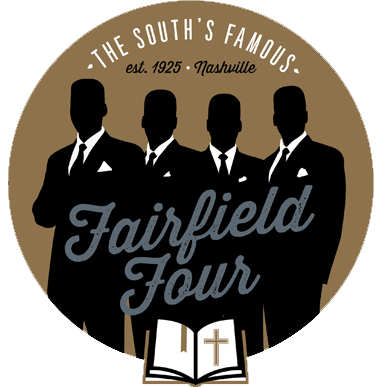About
Known best for their appearance at the end of the film O Brother Where Art Thou, and on the subsequent soundtrack release, the Fairfield Four are alive and well and still singing in the traditional African American a cappella gospel style they have been known for since the group's inception almost 100 years ago. John Fogerty loved Fairfield's rootsy sound so much he decided he had to feature them on his second comeback album, Blue Moon Swamp singing on the track "A Hundred and Ten in the Shade." Later, after it's release, he had the group open for him on many of the tour dates in support of his new CD.
Founded in 1921 in Nashville, TN the Fairfield Four have maintained their authenticity by carrying on traditional stylings exemplified by the Bessemer Sunset Four, the Birmingham Jubilee Singers, and the Famous Blue Jay Singers with Silas Steele. The Fairfield Four are the recipients of multiple honors including 3 Grammy Awards, (1) Best Traditional Gospel Recording "I Couldn't Hear Nobody Pray" in 1997, (2) Album of the Year for the "O Brother Where Art Thou" Soundtrack Recording in 2001, (3) Best Gospel Roots album "Still Rockin' My Soul" in 2016, and two Lifetime Achievement Awards. They were also inducted into the Gospel Music Hall of Fame in 1999.
